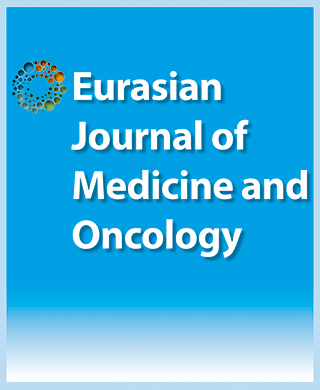

Advancing Oral Squamous Cell Carcinoma Patient Care with Artificial Intelligence: From Prediction to Rehabilitation
B Haridevamuthu11Center for Global Health Research, Saveetha Medical College and Hospitals, Saveetha Institute of Medical and Technical Sciences (SIMATS), Chennai, Tamil Nadu, India,
Dear Editor-in-Chief, I am writing to underscore the immense potential of arti f icial intelligence (AI) in revolutionizing the quality of life for patients with oral squamous cell carcinoma (OSCC), mainly through enhanced functional outcomes post-treat ment.[1] The power of AI to analyze intricate datasets and forecast outcomes presents unprecedented opportunities in this field, inspiring a future where OSCC care is signifi cantly improved.[2] Despite advances in OSCC treatment, patients continue to face challenges with speech and eat ing functions, profoundly affecting their social and emo tional well-being. The capacity of AI to analyze complex data and predict outcomes presents a promising avenue to address these issues. AI can enable personalized treatment by predicting the functional impact of various therapeutic approaches. Machine learning models can use pre-treat ment data to forecast the degree of functional impairment, aiding clinicians in choosing the least invasive yet effective treatment options.[3] Additionally, AI can tailor rehabilita tion efforts by adjusting speech therapy in real-time and optimizing dietary plans based on individual needs, there by enhancing recovery and nutritional intake. To fully har ness the transformative power of AI, I urgently advocate for focused research in the following pivotal areas, AI Models Predicting Functional Outcomes in OSCC Patients Post-Treatment Developing AI models that can predict functional out comes such as speech and eating capabilities post-treat ment is crucial. These models can analyze diverse datasets, including clinical, imaging, and treatment response data, to forecast the degree of functional recovery or impair ment a patient might experience.[4] This predictive power allows for more informed decisions in treatment planning, aiming to balance disease control with preserving quali ty of life. Encouraging research in this area could lead to personalized treatment protocols that minimize functional loss based on individual patient profiles.[5] AI-Enhanced Rehabilitation Strategies for Speech and Eating Functions AI can revolutionize rehabilitation by adapting and person alizing therapy regimens based on real-time patient prog ress. For speech therapy, AI-driven applications can use speech recognition and processing to adjust exercises and feedback for optimal recovery.[6] AI can analyze changes in masticatory and swallowing abilities for eating functions to tailor dietary recommendations and therapy exercises. Re search into AI-enhanced rehabilitation can lead to dyna ic, responsive interventions that accelerate recovery and improve overall functionality for OSCC patients. AI Tools for Monitoring and Supporting the Psychosocial Well-Being of OSCC Patients The psychosocial impact of OSCC and its treatment is pro found, often leading to depression, anxiety, and social with drawal due to functional deficits. AI tools can be critical in early detection and intervention for these issues. By analyzing patient-reported outcomes, social media interactions, and be havioral data, AI can identify patterns indicative of psycholog ical distress.[7] Encouraging research in this area could lead to the development of AI-based monitoring systems that trigger alerts for healthcare providers to initiate timely psychosocial support, thereby improving overall patient care. By prioritizing research in these areas, we can lead the way in a more comprehensive and patient-centered approach to OSCC care. This could potentially transform the lives of those affected by this challenging disease, underscoring the crucial role of healthcare professionals and researchers in advancing AI technology
Cite This Article
Haridevamuthu B. Advancing Oral Squamous Cell Carcinoma Patient Care with Artificial Intelligence: From Prediction to Rehabilitation. EJMO. 2024; 8(2): 233-234
Corresponding Author:



